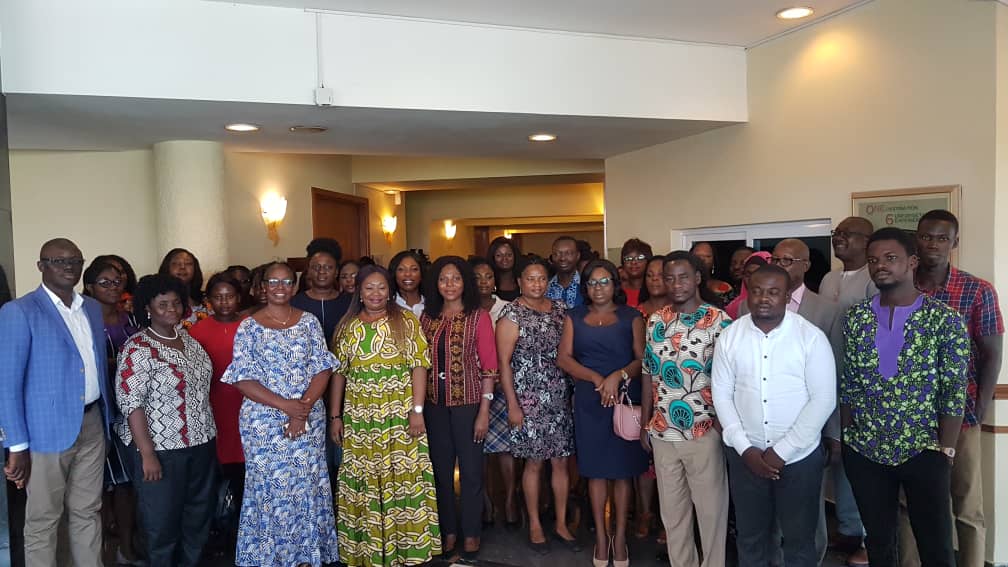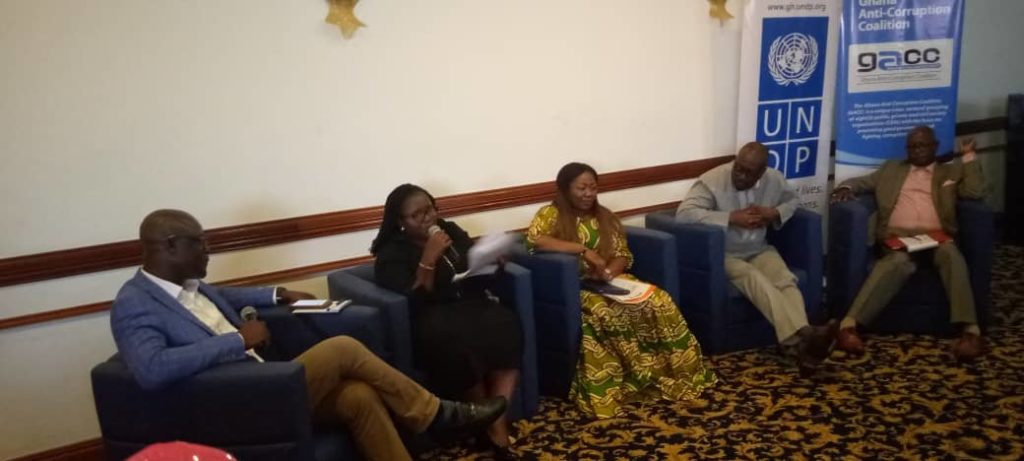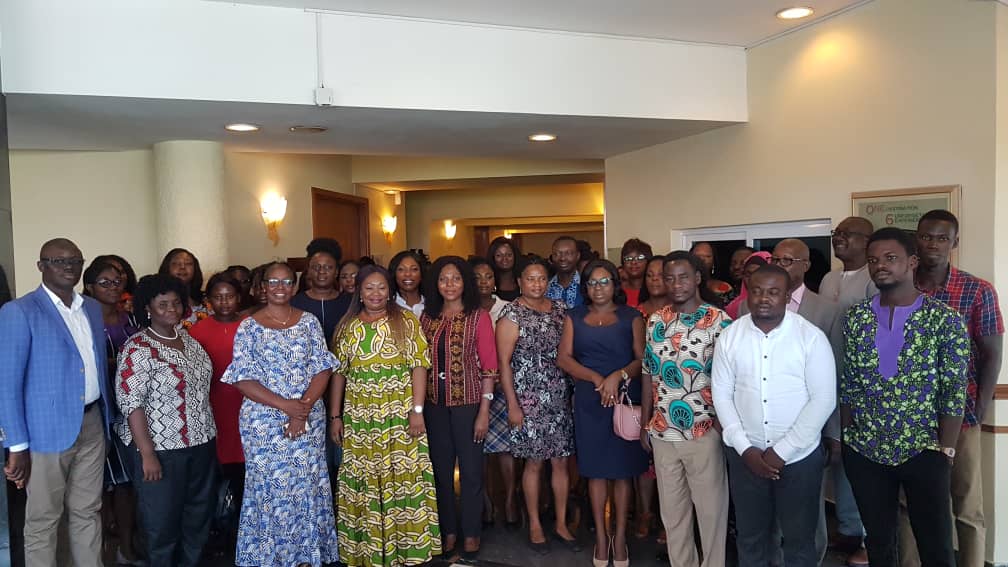The Ghana Anti-Corruption Coalition (GACC) with support from the United Nations Development Programm (UNDP)has indicated that women constitute half of the world’s population, yet they are mostly not engaged in discussions around one of the most pressing issues to development and social.
According to Transparency International report, empowering women and promoting their participation in political life is essential in the quest to fight corruption and addressing the gendered impact of corruption, therefore levelling the playing field and the gender power imbalances and inequalities between women and men.
It is said that women are the custodians of building the value systems of the next generation, as they mostly take care of children with the needed capacity and information, women can contribute to advocacy against corruption in their local communities and demand accountability from public officials as well.

The objectives of the workshop were to create awareness among key stakeholders on the links between gender and corruption, as well as dialogue and agree on some country specific mechanisms for strengthening women’s role in the fight against corruption in Ghana.
In addtion, discuss effective ways to genderise anti-corruption strategies for successful outcomes.
Speaking at the forum held recently in Accra, Mrs. Clara Beeri Kasser-Tee, a legal practitione and a lecturer at GIMPA indicated that, “there is the need to put value systems in place to enable women part take in the national conversation on the fight against corruption.
This she said, would enable women to contribute effectively towards the fight against corruption; stressing “it is necessary to establish a dialogue between the actors dedicated to fighting against corruption and for gender equality and equity, to allow for a greater understanding of the links between gender dimensions and corruption”.
Nana Teiba Chinbuah, Lead Democratic Governmance Cluster- Programme Specialist at UNDP expressed that, women constitute majority of people living in poverty, thus they are more affected by the vicious cycle corruption creates for disadvantaged people.
“Anti-Corruption has been a priority on the good governance agenda for decades: this is because corruption impacts negatively on the development of a country; and undermines good governance and the rule of law, erodes confidence and trust in the public sector”, she acknowledged.
Adding “It threatens economies by undermining fair competition and discouraging investment and trade.
Fruthermore,lamented that, it disproportionately affects disadvantaged groups by preventing social inclusion, promoting inequality and inhibiting prosperity”.
Anti-Corruption according to her has been a priority on the good governance agenda for decades; this is because corruption impacts negatively on the development of a country; it undermines good governance and the rule of law, erodes confidence and trust in the public sector.
Expressing her believe that, their dialogue about the role of women in the fight against corruption in Ghana is key to national development.
Nana Chinbuah however noted that, although everyone in society suffers from the impact of corruption, some social groups are disproportionately affected, especially the poor and the vulnerable.

“Corruption reduces resources for poverty reduction and deprives the poor and vulnerable of advancement opportunities; as women constitute the vast majority of people living in poverty, thus they are more affected by the vicious cycle that corruption creates for disadvantaged people: poor women as primary caretakers of their families are more dependent on public service provision.
The critical impact of corruption she she opined affects the quality and access to public services because funds are diverted from intended essential services such as health care, education, clean water, sanitation and housing.
“Poor women also lack the resources to seek private alternatives making them more vulnerable to extortion at the point of service delivery”, she acclaimed.
Accross the globe, women constitute half of the world’s population, yet they are mostly not engaged in discussions around one of the most pressing issues to development and social justice; corruption.
Devising strategies that will empower empower women to contribute towards the fight against corruption is of great Essence that pogress towards the achievement of the Sustainable Development Goals would be undermined if corruption is not addressed.
Source: www.thenewindependentonline.com/ Delali Gavor








